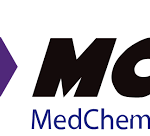Description
Oxytocin (α-Hypophamine) acetate is a pleiotropic, hypothalamic peptide known for facilitating parturition, lactation, and prosocial behaviors. Oxytocin acetate can function as a stress-coping molecule with anti-inflammatory, antioxidant, and protective effects especially in the face of adversity or trauma[1][2].–80°C, 2 years; -20°C, 1 year (Powder, sealed storage, away from moisture)—-C45H70N12O14S2—Bioact Mater. 2023 Mar 15:26:337-352.|J Ethnopharmacol. 2019 Dec 5;245:112181. |Nat Struct Mol Biol. 2022 Mar 3.|Signal Transduct Target Ther. 2023 Jan 2;8(1):3.|SSRN. 2023 Jun 19.|ACS Appl Mater Interfaces. 2022 May 18;14(19):21822-21835.|Evid Based Complement Alternat Med. 2020 May 23;2020:8607931.|Front Pharmacol. 2019 Nov 15;10:1380.|J Headache Pain. 2021 Jul 27;22(1):84.|Psychoneuroendocrinology. 2022 Aug 31.|Sci Rep. 2020 Oct 2;10(1):16383.-[1]Shivali Kohli, et al. Oxytocin attenuates phencyclidine hyperactivity and increases social interaction and nucleus accumben dopamine release in rats. Neuropsychopharmacology. 2019 Jan;44(2):295-305.|[2]C Sue Carter, et al. Is Oxytocin “Nature’s Medicine”? Pharmacol Rev. 2020 Oct;72(4):829-861.–6233-83-6–1067.24–99.44–O=C([C@H](CSSC[C@@H](C(N[C@H](C1=O)CC2=CC=C(O)C=C2)=O)N)NC([C@@H](NC([C@@H](NC(C(N1)[C@@H](C)CC)=O)CCC(N)=O)=O)CC(N)=O)=O)N(CCC3)[C@@H]3C(N[C@@H](CC(C)C)C(NCC(N)=O)=O)=O.CC(O)=O–Endocrinology; Cancer–DMSO : 125 mg/mL (ultrasonic)|H2O : 50 mg/mL (ultrasonic)–Endogenous Metabolite;Oxytocin Receptor–Human Endogenous Metabolite–GPCR/G Protein;Metabolic Enzyme/Protease–Peptides




 Did you check our products for animal nutrition?
Did you check our products for animal nutrition?